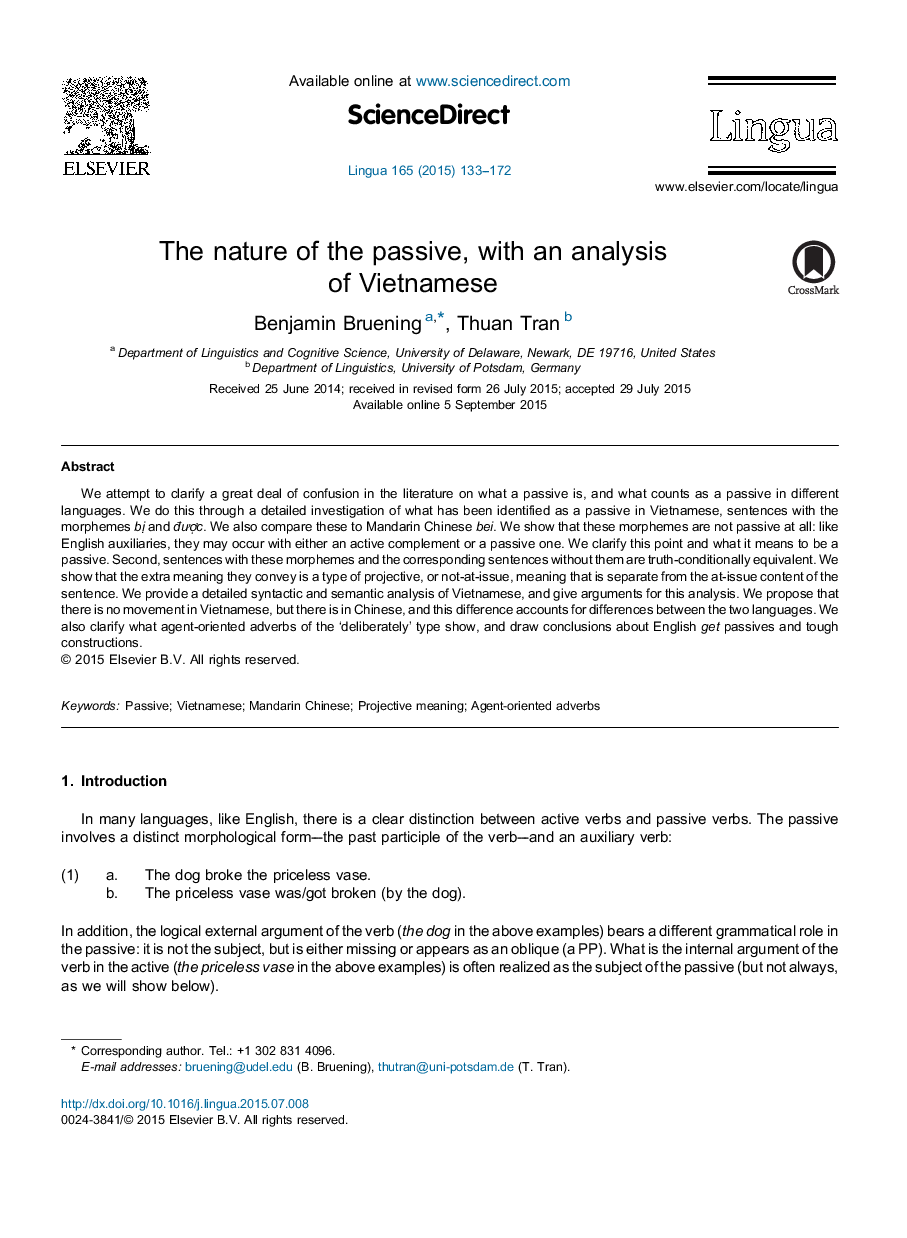| Article ID | Journal | Published Year | Pages | File Type |
|---|---|---|---|---|
| 935296 | Lingua | 2015 | 40 Pages |
•Passives are argued to necessarily involve external argument demotion.•Constructions in Vietnamese and Chinese that have been called passive are not.•The so-called passive morpheme may embed either a passive or an active complement.•A detailed syntax and semantics is proposed for Vietnamese bi-constructions.•Data involving adverbs like ‘deliberately’ are shown to be misunderstood.
We attempt to clarify a great deal of confusion in the literature on what a passive is, and what counts as a passive in different languages. We do this through a detailed investigation of what has been identified as a passive in Vietnamese, sentences with the morphemes bị and được. We also compare these to Mandarin Chinese bei. We show that these morphemes are not passive at all: like English auxiliaries, they may occur with either an active complement or a passive one. We clarify this point and what it means to be a passive. Second, sentences with these morphemes and the corresponding sentences without them are truth-conditionally equivalent. We show that the extra meaning they convey is a type of projective, or not-at-issue, meaning that is separate from the at-issue content of the sentence. We provide a detailed syntactic and semantic analysis of Vietnamese, and give arguments for this analysis. We propose that there is no movement in Vietnamese, but there is in Chinese, and this difference accounts for differences between the two languages. We also clarify what agent-oriented adverbs of the ‘deliberately’ type show, and draw conclusions about English get passives and tough constructions.
